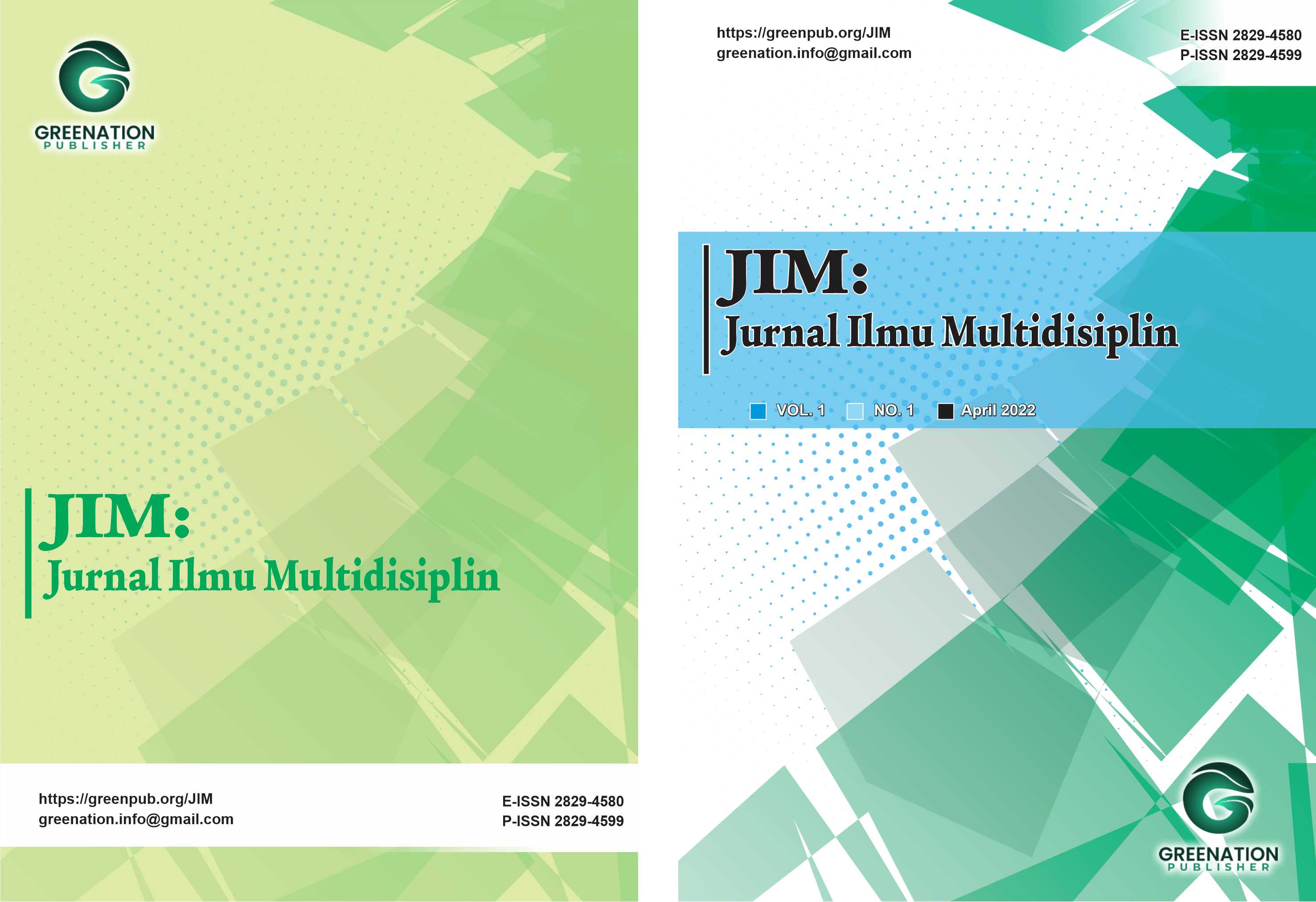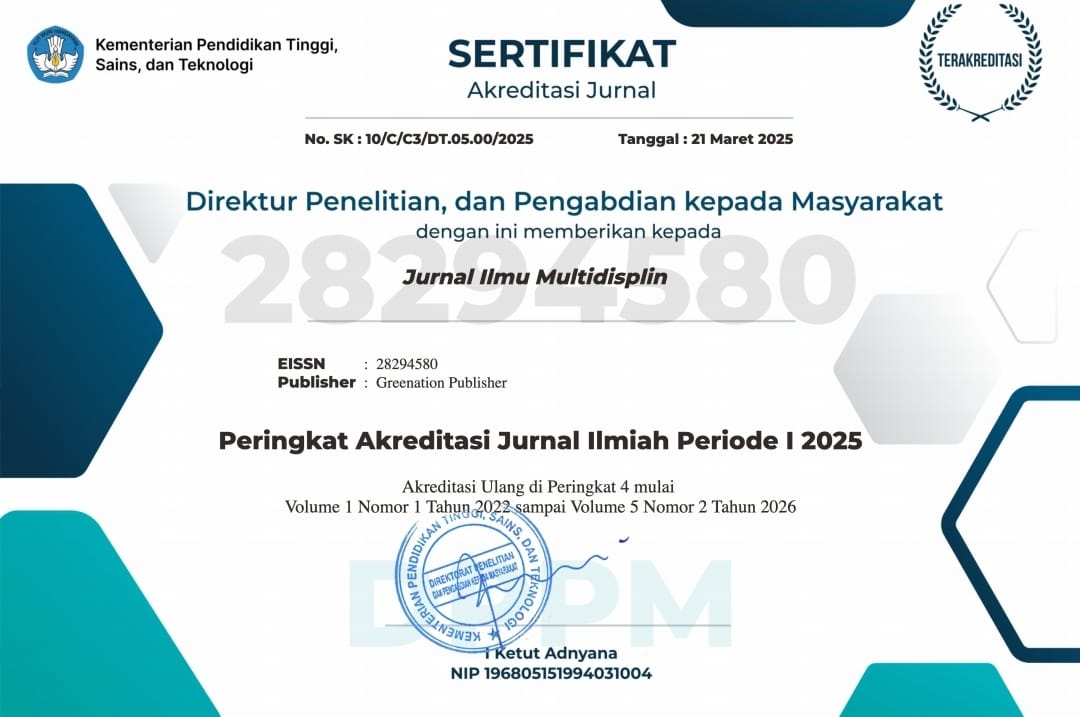Makna False Laziness: Sebuah Studi Fenomenologi Tentang Strategi Mahasiswa Bekerja dalam Mengelola Waktu
DOI:
https://doi.org/10.38035/jim.v4i3.1139Keywords:
False Laziness, Studi Fenomenologi, Strategi Mahasiswa Bekerja, Mengelola WaktuAbstract
Penelitian ini bertujuan untuk mengkaji fenomena false laziness pada mahasiswa yang bekerja. Hasil penelitian menunjukkan bahwa false laziness bukan merupakan bentuk kemalasan, melainkan strategi adaptif dalam menghadapi tekanan dari tanggung jawab akademik dan pekerjaan. Temuan utama mencakup pengelolaan waktu yang fleksibel namun tidak selalu efektif, adanya konflik prioritas yang berdampak pada produktivitas dan kesejahteraan emosional, serta peran penting dukungan sosial dalam membantu mengurangi tekanan dan meningkatkan efektivitas manajemen waktu. Penelitian ini menegaskan bahwa pemahaman terhadap dinamika false laziness penting untuk pengembangan strategi dukungan yang lebih tepat bagi mahasiswa yang bekerja.
References
Abubakar, R. (2021). Pengantar Metodelogi Penelitian. Yogyakarta: SUKA-Press UIN Sunan Kalijaga.
Ahmad, R. & Kurniawan, M. (2022). Pengaruh Sosial Teman Sebaya terhadap Perilaku Penundaan. Jurnal Psikologi Remaja, 9(3), 201-215.
Badan Pusat Statistik (BPS). (2022). Laporan Statistik Mahasiswa.
Bennett, P., & McCarthy, P. (2023). Navigating Academic and Work Demands: Student Perspectives on Time Management. Qualitative Psychology
Chu, A.H.C. & Choi. J.N. (2005). Rethinking procrastination: Positive effects of “active” procrastination behavior on attitudes and performance. The Journal of Social Psychology. 145(3):245-264.
CNN Indonesia. (2023). Meningkatnya Kunjungan Mahasiswa ke Psikolog untuk Mengatasi Stres.
Creswell, John W (2016). Research Design: Pendekatan Metode Kualitatif, Kuantitatif, dan Campuran, terjemahan, Yogyakarta: Pustaka Pelajar
Detik. (2023). Kegiatan Ekstrakurikuler Menambah Beban Stres Mahasiswa.
Doi:10.3200/SOCP.145.3.245-264
Ferrari, J. R., Barnes, K. L., & Steel, P. (2009). Life regrets by avoidant and arousal procrastinators: Why put off today what you will regret tomorrow?. Journal of Individual Differences, 30(3), 163-168.
Fritz, C., et al. (2018). Understanding the relationship between procrastination and health: A meta-analysis. Health Psychology Review, 12(1), 1-14.
Hidayati, N. & Junaidi, A. (2023). Efektivitas Intervensi Manajemen Waktu dalam Pembelajaran Mahasiswa. Jurnal Pendidikan Tinggi, 12(1), 75-89.
Ilmiyah, N. (2021). Mudahnya Memahami Metode Penelitian. Bojonegoro : CV. Agrapana Media.
Jansen, J., & Visscher, A. (2016). Balancing work and study: The role of social support in managing work-related stress among students. Psychology of Learning and Motivation, 64, 83-102.
Kompas. (2023). Tekanan Akademik Memicu Penundaan di Kalangan Mahasiswa. Harvey, L., & Bastian, K. (2022). The Impact of Work-Study Balance on Student Well-Being: A Qualitative Study. Journal of Student Affairs Research and Practice.
Lestari, P. (2023). Dukungan Emosional dan Manajemen Stres pada Mahasiswa. Jurnal Kesehatan Mental, 8(2), 98-110.
McKeown, M., & Lindley, L. (2018). The impact of part-time work on student wellbeing: A qualitative study. Journal of Educational Psychology, 110(2), 143-157.
Meleong, L. J. (2007). Metode Penelitian Kualitatif. Bandung : PT. Remaja Rosdakarya.
Pychyl, T. A. (2013). Procrastination: A Short Guide to Solving the Procrastination Puzzle.
Rahayu, S. & Prabowo, H. (2023). Pengaruh Tuntutan Akademik Terhadap Perilaku Penundaan Mahasiswa. Jurnal Psikologi Pendidikan, 10(2), 123- 135.
Rizvi, A., Prawitasari, J. E., & Soetjipto, H.P. (1997). Pusat kendali dan efikasi diri sebagai prediktor terhadap prokrastinasi akademik mahasiswa. Jurnal Psikologika. 2(3), 51-67
Santosa, D. & Widodo, E. (2023). Dampak Manajemen Waktu terhadap Prestasi Akademik. Jurnal Pendidikan dan Pembelajaran, 11(1), 45-58.
Schermer, J. A., & Vian, A. (2016). The Relationship between Work, Study, and Procrastination. Journal of Educational Psychology, 108(3), 383-391.
Schoeppe, S., & Short, C. (2023). Understanding Student Experiences of Procrastination: A Qualitative Exploration. Educational Psychology Review.
Singh, R., & O’Connor, K. (2023). Student Experiences of Procrastination: A Narrative Inquiry. International Journal of Educational Psychology.
Steel, P. (2007). The Nature of Procrastination: A Meta-Analytic and Theoretical Review of Quantitative Studies on Procrastination. Psychological Bulletin, 133(1), 65-94.
Strayhorn, T. L. (2014). Student employment and academic success: A study of community college students. Community College Journal of Research and Practice, 38(7), 604-615.
Sugiyono. 2018. Metode Penelitian Kuantitatif, Kualitatif, dan R&D. Bandung : Alfabeta
Sujarweni. (2019). Metode Penelitian. Yogyakarta: Pustaka Barupress
Tempo. (2023). Mahasiswa Rentan Alami Kecemasan Akibat Tekanan Akademik. Terry, M., & Stokes, A. (2022). Exploring the Psychological Mechanisms of Procrastination in College Students: A Qualitative Approach. Journal of College Counseling
Tribun News. (2023). Universitas Terapkan Program Manajemen Waktu untuk Mahasiswa.
Wang, Y. (2020). The relationship between part-time work and academic performance among college students: A meta-analysis. Journal of College Student Development, 61(2), 215-231.
Downloads
Published
How to Cite
Issue
Section
License
Copyright (c) 2025 Yohana Koronka Adi Yuwana, Sri Muliati Abdullah

This work is licensed under a Creative Commons Attribution 4.0 International License.
You are free to:
- Share— copy and redistribute the material in any medium or format
- Adapt— remix, transform, and build upon the material for any purpose, even commercially.
The licensor cannot revoke these freedoms as long as you follow the license terms.
Under the following terms:
- Attribution— You must give appropriate credit, provide a link to the license, and indicate if changes were made. You may do so in any reasonable manner, but not in any way that suggests the licensor endorses you or your use.
- No additional restrictions— You may not apply legal terms or technological measures that legally restrict others from doing anything the license permits.
Notices:
- You do not have to comply with the license for elements of the material in the public domain or where your use is permitted by an applicable exception or limitation.
- No warranties are given. The license may not give you all of the permissions necessary for your intended use. For example, other rights such as publicity, privacy, or moral rightsmay limit how you use the material.



























